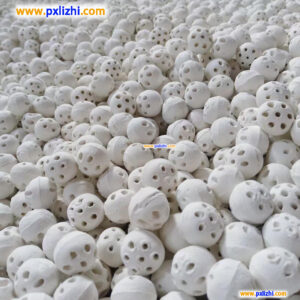
The Ultimate Guide to Inert Ceramic Balls: Properties, Applications, and Benefits
Inert ceramic balls are versatile industrial materials known for their exceptional durability and chemical stability. These small, spherical components play a critical role in numerous industrial processes where reliable performance under extreme conditions is required.
Key Physical Properties
These specialized balls exhibit remarkable characteristics including high mechanical strength, excellent thermal stability, and superior corrosion resistance. Their low water absorption rate and consistent spherical shape make them ideal for precision applications across various industries.
Chemical Composition Advantages
Manufactured from high-purity alumina and other ceramic materials, inert ceramic balls maintain chemical inertness even when exposed to aggressive media. This makes them perfect for applications requiring contamination-free environments.
Industrial Applications and Uses
From petroleum refining to chemical processing, inert ceramic balls serve as essential components in multiple sectors. Their versatility extends to water treatment facilities, pharmaceutical manufacturing, and environmental protection systems.
Catalyst Bed Support Systems
In chemical reactors, these balls provide crucial support for catalyst beds, ensuring proper gas distribution and preventing catalyst leakage while maintaining optimal flow dynamics.
Thermal Insulation Applications
The excellent thermal properties of inert ceramic balls make them ideal for high-temperature insulation in furnaces and kilns, where they help maintain consistent temperatures and improve energy efficiency.
Economic and Operational Benefits
Companies choosing high-quality inert ceramic ball solutions experience significant cost savings through extended service life and reduced maintenance requirements. Their durability translates to fewer replacements and lower operational downtime.
Performance Enhancement
These ceramic balls improve process efficiency by providing better fluid distribution, reducing pressure drops, and enhancing overall system performance in various industrial setups.
Frequently Asked Questions
What temperature ranges can inert ceramic balls withstand?
These balls typically operate effectively in temperatures ranging from -50°C to 1600°C, depending on their specific composition and manufacturing process.
How do I select the right size for my application?
Size selection depends on your specific process requirements, including reactor diameter, flow rates, and the nature of materials being processed. Common sizes range from 3mm to 50mm diameter.
Are there different quality grades available?
Yes, manufacturers offer various grades categorized by alumina content, with higher percentages generally providing better performance in demanding applications.
Ready to Optimize Your Processes?
Discover how our premium inert ceramic balls can revolutionize your industrial operations. Contact our experts today for personalized recommendations and technical support tailored to your specific needs. Experience the difference that quality ceramic solutions can make in your production efficiency and bottom line.
